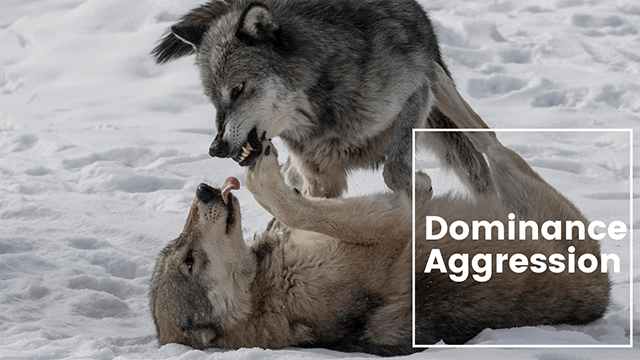Blog
Dog to Dog Aggression - Dominance in Dogs
Food And Treats
March 03, 2021

Do you have a dog that seems unpredictable in its reactivity towards other dogs? This type of aggression on the surface can look a lot like an overly aroused dog, there are some key differences, and it's important to know the differences because the approach to behaviour modification is different.
What it looks like
- Confidence. A truly dominant dog is usually socially appropriate with most dogs and people. She is well versed in dog behaviour and tends to communicate effectively with even the subtlest of cues with other dogs. She is comfortable in meeting other people or dogs but it's often on her own terms.
- Somewhat aloof. Typical of more dominant personalities this type of dog doesn't feel the need to seek social attention from others as much as most dogs do. She's comfortable being on her own and isn't usually the first to approach in a greeting.
- Aggression is infrequent. This type of dog doesn't respond with aggression unless another dog or human has violated his rules or overstepped his boundaries. Corrections or punishments to the other dog or person are swift and direct.
Causes
- Genetic. Dominance is genetic in the dog. It's in his inborn personality. Thankfully, truly dominant dogs are very rare, as they can be dangerous to work with. Their dominant nature is reflected whether they are interacting with people or with other dogs, and they have no hesitation to correct either.
How to treat
- Lifelong management. Because this is a genetic trait, training will help to make the situation more livable, but lifelong management and realistic expectations about day to day living with this type of dog is absolutely required in order to live safely with these kinds of dogs.
- Obedience training. Obedience training is also required in order to live safely and have a clear communication system between the handler and this kind of dog.
- Firm but fair hand. This type of dog requires very experienced owners that understand how to be firm, clear, and fair in their day-to-day interactions. This type of dog will take advantage of overly passive handlers and training techniques. On the contrary, he will also stand up for himself if he feels he's been corrected unfairly and will not hesitate to correct the offender as a result.
Got a dog that you think might be exhibiting dominance aggression issues? Email us at [email protected] for more information on how we can help you!
Categories
All Categories
Dog Aggression
Food And Treats
Stay connected with news and updates!
Join our mailing list to receive the latest training tips and updates from me!
Don't worry, your information will not be shared.
We hate SPAM. We will never sell your information, for any reason.




